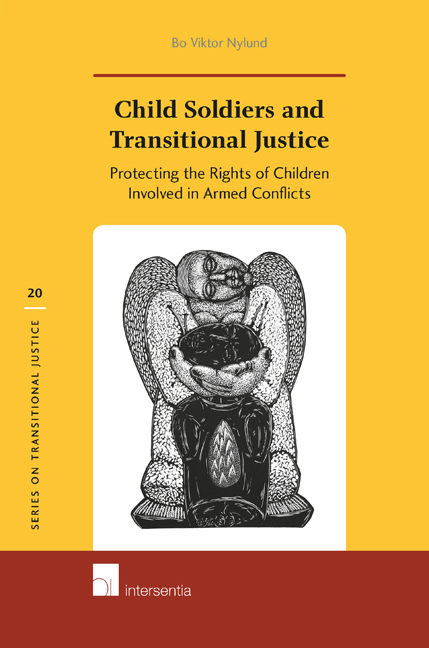 Child Soldiers and Transitional Justice
Child Soldiers and Transitional Justice Published online by Cambridge University Press: 12 December 2017
“They made you chop off an arm or kill someone in your family, then they gave you drugs to make you feel better, and then you did not care and you killed many more people.”
INTRODUCTION
Participatory justice is an area of transitional justice that includes elements of administrative and constitutional justice, but it has recently been viewed as a distinct field deserving focused attention. Although this field could be seen as a cross-cutting theme in transitional justice settings, participatory justice requires separate consideration in the context of child recruitment.
Participatory justice offers an opportunity for children to make a significant contribution to the various processes related to transitional justice. It is every child's right to be heard and to express her or his views and opinions, but participatory justice not only conveys rights to an individual child, it confers responsibilities.
The topic of child recruitment offers a particularly interesting paradox in the field of transitional justice: while child recruitment is defined as a war crime, children themselves may perpetrate human rights violations while serving as child soldiers.
Key legal questions that are considered in this chapter include:
– What does the law provide for more generally that can be applied to support children's participation in justice processes in a transitional justice context?
– What is the situation of children who have participated in the conflict and who may have carried out crimes while in the ranks of an armed group or force?
– In both those instances, what approaches are in the best interests of children and society as a whole, inclusive of protecting the rights of children while also considering their responsibilities?
It is critical to be clear about the objectives in the processes of participatory justice. Are we seeking ways and means through which children can recover and reintegrate, or looking for ways to hold children accountable? Do we want to warn future child soldiers against participating in armed conflicts? Or do we want to achieve all of the above? It is in the best interests of the child and the wider society that justice is approached with a view to restore and recover so that child soldiers are able to reintegrate.
To save this book to your Kindle, first ensure [email protected] is added to your Approved Personal Document E-mail List under your Personal Document Settings on the Manage Your Content and Devices page of your Amazon account. Then enter the ‘name’ part of your Kindle email address below. Find out more about saving to your Kindle.
Note you can select to save to either the @free.kindle.com or @kindle.com variations. ‘@free.kindle.com’ emails are free but can only be saved to your device when it is connected to wi-fi. ‘@kindle.com’ emails can be delivered even when you are not connected to wi-fi, but note that service fees apply.
Find out more about the Kindle Personal Document Service.
To save content items to your account, please confirm that you agree to abide by our usage policies. If this is the first time you use this feature, you will be asked to authorise Cambridge Core to connect with your account. Find out more about saving content to Dropbox.
To save content items to your account, please confirm that you agree to abide by our usage policies. If this is the first time you use this feature, you will be asked to authorise Cambridge Core to connect with your account. Find out more about saving content to Google Drive.